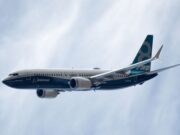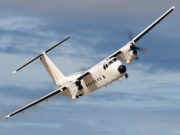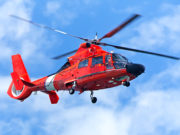The Transportation Safety Board (TSB) of Canada reiterated its call to expand the use of cockpit and flight data recorders (CVRs/DVRs) in smaller aircraft following the fatal crash of a Cessna Citation on Oct. 13 north of Kelowna, British Columbia.
The accident aircraft was not equipped with, nor was it required to carry, either a DVR or a CVR, TSB said, adding that the absence of such equipment will make this investigation particularly challenging.
“In Canada, Transport Canada requires medium and large commercial aircraft to be equipped with onboard flight recorders, but there are still no requirements for such recorders on smaller aircraft,” said Kathy Fox, chair of the TSB. “As early as 1991, the Board made a recommendation calling for the upgrade of flight recorder requirements. This latest accident is another reminder of how important these recorders are. If we are to get to the underlying causes of these tragic accidents, Transport Canada and the aviation industry need to take immediate action to address this outstanding safety issue.”
According to TSB, the accident aircraft departed Kelowna Airport on a flight to Calgary/Springbank Airport at 21:32 local time on Oct. 13. The aircraft disappeared off radar and truck terrain approximately 11 km (7 mi) north of Kelowna Airport at about 21:40. The aircraft was destroyed by high deceleration forces after a vertical descent, and the four people on board — one pilot and three passengers — sustained fatal injuries, TSB said.
“The TSB urges the industry and private corporate aircraft owners to take advantage of the new, low-cost flight recording technology to advance safety in their operations,” Fox said. In Canada, only multi-engine, turbine-powered commercial aircraft flown by two pilots and carrying six or more passengers are required to carry a CVR on board, TSB said.
Former Alberta, Canada, Premier Jim Prentice was among the passengers on the aircraft, according to media reports.


